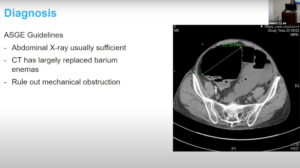NEW YORK (Reuters Health) – Concerns that bisphosphonate drugs used to treat osteoporosis might increase the risk of developing esophageal cancer have been put to rest by a UK study reported in this week’s Journal of the American Medical Association.
The authors of the report note that bisphosphonates can occasionally cause severe esophagitis, and that reflux esophagitis is a risk factor for esophageal cancer. This led to concerns that the drugs might also increase esophageal cancer risk, and indeed the US Food and Drug Administration has reported 54 cases of esophageal cancer in bisphosphonate users in the US, Europe and Japan.
To investigate, Dr. Chris R. Cardwell of Queen’s University Belfast and colleagues analyzed data extracted from the UK’s General Practice Research Database (GPRD). They identified 41,826 patients who had been prescribed bisphosphonates and had at least 6 months follow-up, and matched them to the same number of control subjects.
The team examined occurrences of esophageal and gastric cancer, because “tumors arising at the gastroesophageal junction or in the gastric cardia may have been classified as esophageal cancers rather than gastric cancers.”
Mean follow-up was 4.5 years in the bisphosphonate users, 4.4 year in the control cohort. There were 79 esophageal and 37 gastric cancers (116 total) in the bisphosphonate group compared with 72 esophageal and 43 gastric cancers (115 total) among the controls.
“The incidence of esophageal and gastric cancer combined was 0.7 per 1000 person-years of risk in both the bisphosphonate and control cohorts,” Dr. Cardwell and colleagues report. “The incidence of esophageal cancer alone in the bisphosphonate and control cohorts was 0.48 and 0.44 per 1000 person-years of risk, respectively.”
The duration of bisphosphonate use made no difference to the risk of either cancer.
“In conclusion,” the authors write, “in the UK GPRD patient population we found no evidence for a substantially increased risk of esophageal (or gastric) cancer in persons using oral bisphosphonates. These drugs should not be withheld, on the basis of possible esophageal cancer risk, from patients with a genuine clinical indication for their use.”
JAMA 2010; 304:657-663.




